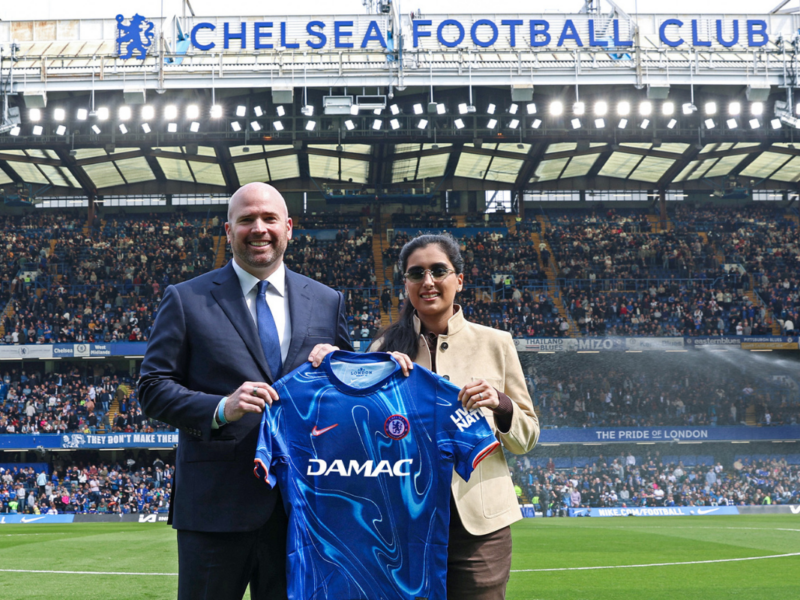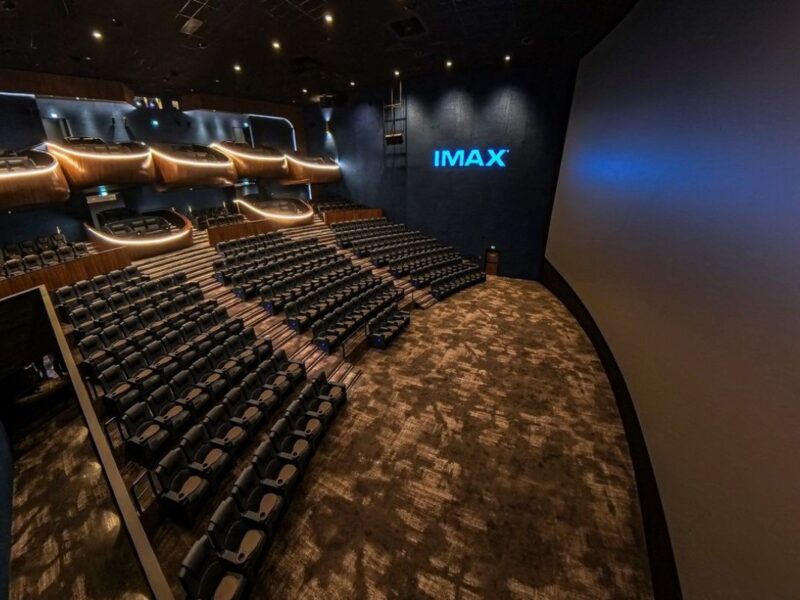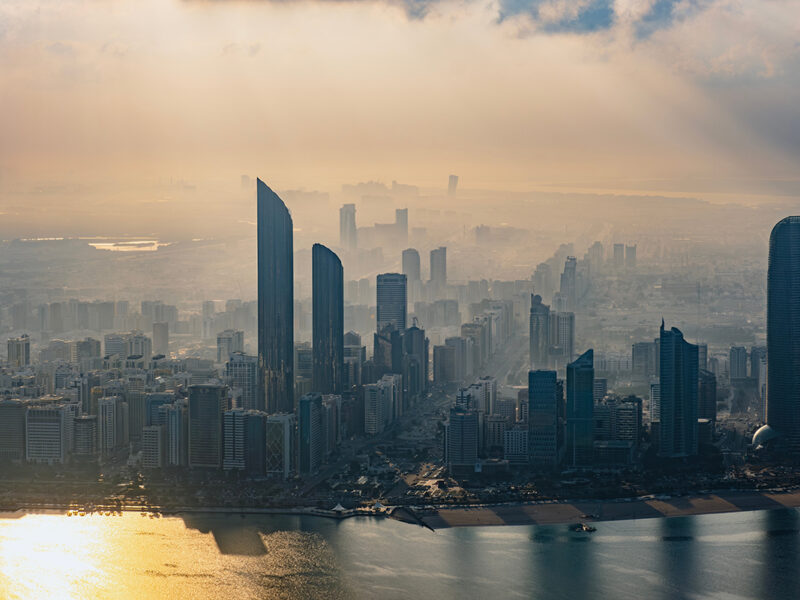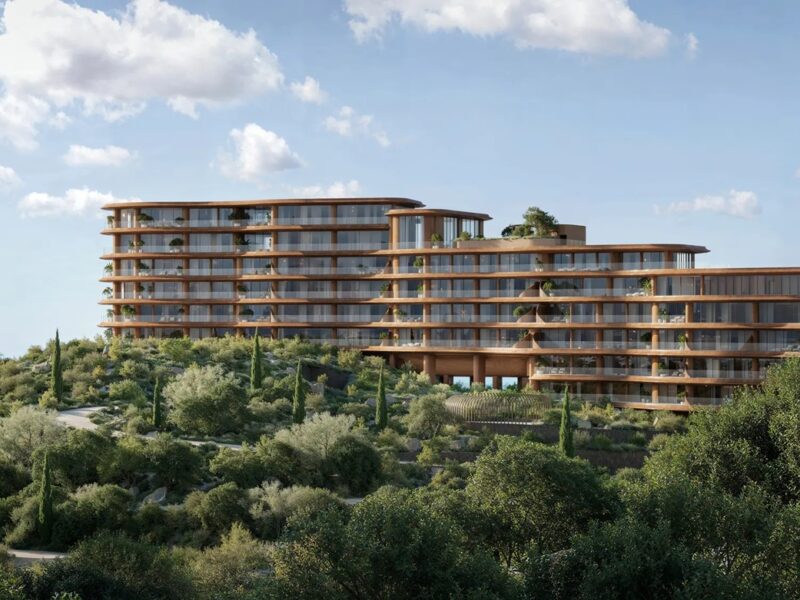Kalyan Jewellers – India’s largest jeweller chain, with $1.5bn in annual revenues – is not shy about making noise when it expands its already vast network of stores.
Bollywood stars, and all the razzmatazz and attention they bring, go hand-in-hand with multiple Kalyan store openings in a single day.
“We paint the city red and everybody knows that Kalyan is coming and people have an expectation level from the brand. We try to match that,” says executive director Ramesh Kalyanaraman.
When Kalyan launched in the GCC two-and-a-half years ago, it did so by opening six stores on the same day in Dubai.
That has been followed with the opening of further stores in the UAE, along with six simultaneous openings in Qatar and two in Kuwait.
“As a brand, Kalyan is one of biggest jewellery retail chains in our country [India], so when Kalyan planned to launch the first international operations in a city like Dubai, we knew that … not everyone can reach [the same] shop, because Dubai is spread out and people like to buy from their own place,” he says.
“If they are in Al Qusais, they want to buy from there; and if they are in Karama, they to buy from Karama. With a brand like Kalyan, people expect a big launch and we know that we cannot satisfy the people here with one store. We want to be geographically present everywhere.”
Kalyan Jewellers now has 100 stores in its portfolio, 21 of which are in the GCC. Currently in an “investment mode”, the company still has ambitious plans to expand its operations, with particular emphasis in the Gulf region, where its current annual revenue is $200m.

Bollywood actors have long been brand ambassadors for Kalyan Jewellers, appearing at multiple store openings in a day.
Kalyanaraman says the family business will open 20 showrooms in its current fiscal year (April 2016-March 17), 15 of which will be in India.
“We target 4 or 5 percent growth every year for our stores, and we target 30 percent growth in revenues by adding new stores,” Kalyanaraman says.
“For this year, we are planning to open five more showrooms in Dubai.”
Curiously, the one obvious area where Kalyan does not have a showroom is one of Dubai’s major tourist locations – the Gold Souq.
“We always have a [prerequisite] that our showrooms should be ‘this size’,” he says. “It didn’t match and we couldn’t get a space there, but we are still pitching. We will open showrooms only if we are satisfied.”
Kalyan Jewellers was established by his father, TS Kalyanaraman – chairman and managing director – in 1993, in a break away from the family’s long-established silk business.
A separate entity headquartered in Thrissur, Kerala, Kalyan Jewellers has established itself as the biggest jewellery firm in India and expects to be double revenues to $3bn by 2020.
This, Kalyanaraman says, will be spurred by its expansion plans in the GCC region, where he says Kalyan expects to earn 40 percent of its total revenue in four years’ time – the equivalent of growing its current GCC revenue six-fold.
“We plan to expand, we plan to enter new countries in the GCC [including] Saudi, Bahrain and Oman,” Kalyanaraman says. “This year, we are only opening in the UAE – we’re opening five stores – but already the paperwork [has been prepared] and the team is there in Saudi.”
Despite Dubai being an obvious choice for the company’s expansion, Kalyanaraman explains that focusing on building the company’s operations in India is the reason why it did not enter the GCC market until recently.

Variety and volume keep customers coming to Kalyan Jewellers, Kalyanaraman says.
“In India, there are many markets where Kalyan has yet to open; there’s huge scope in India. We were focusing on our own market and making sure that we were in the right areas,” he says.
“The pace in India was very high, we opened 20-22 showrooms per year. When we knew that Kalyan was represented all over the country, we wanted to start international operations. We opened [in Dubai] two-and-a-half years ago, but the planning started four years before that.”
The plans for Saudi Arabia are impressive, with 11 showrooms earmarked to open in the kingdom in two years’ time.
“Saudi is supposed to be the best market for jewellery and the demand is very high there,” says Kalyanaraman.
While he will not divulge details of the planned locations, he says Riyadh and Jeddah are obvious choices, as well as the holy cities of Makkah and Madinah.
“Every location is equally good; it will depend on the number of showrooms that we open in each city [and] it depends on the volume of stores that we open there. It’s too early to say how many will be opened in each city, or how many will be opened in [total]. We have plans for multiple showrooms there.”
He says Kalyan will open five showrooms in Oman, as well as “one or two in Bahrain”.
In 2014, the company received $200m from the Indian arm of US private equity firm Warburg Pincus for a minority stake in the company. However, Kalyanaraman says future expansion will not require further equity investment.
“For the expansion plan, we will need funds, but the funds can be easily managed with our internal accruals and a certain quantity of bank finance. We will not go for a dilution of equity in the near future,” he says.
Sourcing the new locations is a precise business for Kalyan, with a special team in place to choose sites that match its brand.

Kalyan plans to grow GCC sales six-fold.
“We have a huge survey team in our country,” Kalyanaraman says. “We send them and also take help from sources here [in Dubai]. We study the population [in the prospective locations]. We are looking for the kind of population who might prefer shopping at Kalyan. We decide on locations from that.”
Promotion is also a major part in Kalyan’s success. Based on current figures, the company will spend in the region of $30m on marketing this year. Kalyanaraman says they do not calculate an exact return on investment (ROI), but instead focus on ensuring the brand ambassadors match the company’s intended profile.
“We spend approximately two percent of our revenue for marketing, which includes all the promotions that we do,” Kalyanaraman says.
“We don’t look at each promotion ROI because as a brand when I do a promotion I get a lot of new customers. They will be our lifetime customers, so I cannot look at the ROI on promotion.
“Simply getting a Bollywood superstar to endorse a product, we are not looking for that as a brand. We select our celebrity if there is a brand match between the celebrity and the brand. Kalyan is a legendary brand in our country; it’s a very old brand. When we go to a brand ambassador, we try to get a legendary figure only to endorse us.”
In a crowded market, differentiating the brand is important too. Kalyan manufactures its own jewellery using its own designs.
The company has a manufacturing unit in Sharjah that produces 150 kilos a month of jewels, which will increase when the new unit in the emirate comes fully on stream.
“We opened one more manufacturing unit a month ago. It’s not in full-fledged operation yet, but our production is going to increase to 250kgs,” Kalyanaraman says.
Differentiating from the rest, he says, comes in many ways with particular emphasis placed on variety and volume of stock.
“The difference comes not only in manufacturing, it comes in the quantity of stock you put in your showroom. We stock much more than the competition. The composition of stock is different, from all states in India,” he says.

Indian jewellery is more popular in the GCC.
“We have our own designers who design new products. Every season [each quarter] we try to launch new products, because the shelf life of the jewellery have come down.”
The designs are changing all the time, he says, and recently the company has recruited Arab designers to create its own line, Ameera – Arabic for princess.
“We employ Arab designers and they understand the designs better than us,” he says.
“A lot more Arabs are starting to like Indian jewellery now. It’s a new change that has come over the past two or three years. Even when we launched in the GCC, it wasn’t this high. We launched a brand called Ameera, which is Arab wedding rings, and they are going well. We are going to launch one more [Arab] brand soon.”
The Arab brands are part of Kalyan’s plans to significantly grow the company’s business in the region, with Dubai being the core focus of its expansion plans.
“We intend to expand by 20 percent every year in Dubai, unless we reach a saturation point,” he says. “As of now, because the brand is only present in seven areas in Dubai, we have huge areas where we can develop. At least for the next three or four years we can expand at the ratio of 20 percent in Dubai.”
He remains confident about the long-term benefits Dubai will bring Kalyan Jewellers.
“Every country goes through ups and downs and the sentiments of Dubai is that it’s always the best market for jewellery because people coming to Dubai don’t leave without a piece of jewellery,” Kalyanaraman says.
“We are not worried about the short-term benefits. As a brand, we only look at long-term benefits. It’s the best market to be present in, and we will do our expansion plan as per the plan that we had when we entered this market.
“We’re not going to leave it because the market is down or up. We don’t change our plans because we’re very confident in this country and it’s a good country to invest in.”









